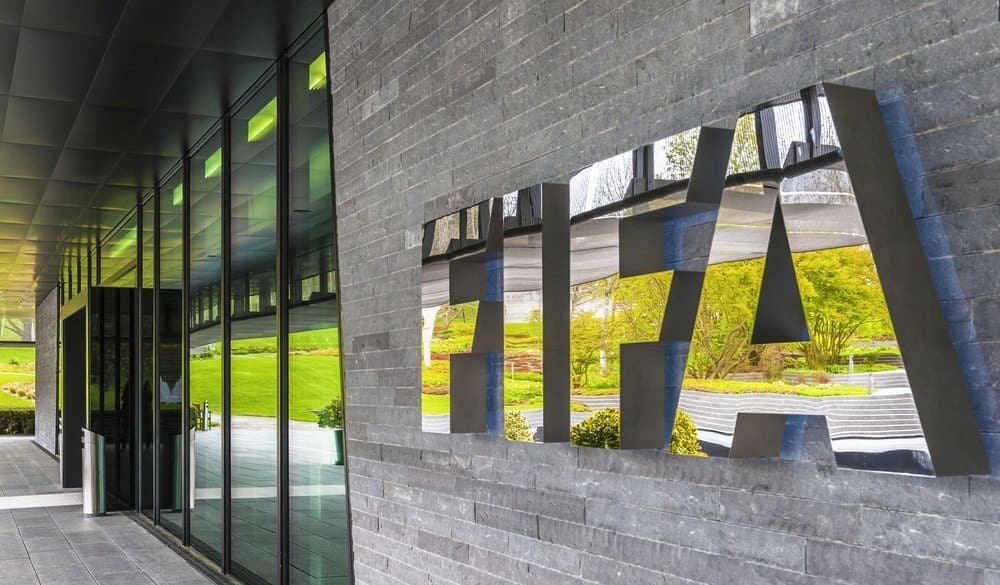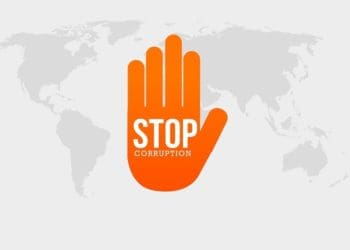Zurich, 31st October, 2007 – FIFA (Fédération Internationale de Football Association) confirms Brazil as the host to the 2014 World Cup; although it was a single candidate bid, the decision was taken after long negotiations between the Brazilian government and FIFA and contrasted with the assessment of the latter’s chairman, Joseph Blatter, who said some months before: “[Brazil] has no [stadiums] with the requirements to host such an event.” And so the compliance issues were just being conceived…
History
Firstly, to understand the ordinary Brazilian mindset, it is worth recalling history. Brazil was discovered by the Portuguese navigator Pedro Álvares Cabral in 1500 and for the three coming centuries remained a Portuguese colony. During this period, the country was shredded into several pieces of land given by the Portuguese crown to some “important” nobles in exchange for money or other favors.
In 1808, the Portuguese court was transferred to Brazil to escape from France’s Napoleon, who was to invade Portugal. Since the escape was not planned, the Royal family and the escorting court left their country without due provisions (more specifically, money). As soon as they arrived in Brazil, they had to issue lots of new laws to accommodate the colony to their stay. The first act was to allow direct commercial relations between Brazil and Great Britain and other “friendly” nations (in exchange for security from and peace with Great Britain). The second act was the creation of the United Kingdom of Portugal, Brazil and Algarves, elevating the colony to the same rank as Portugal and granting Brazil some administrative independence.
But the main influence on the current Brazilian mindset is the fact that the Portuguese court, to duly settle down in Rio de Janeiro (the colony capital), was forced to exchange favors with local people; in fact, they needed food, clothes, slaves and a place to live, but they had no money to pursue all those things. Thus, they started granting noble titles, public functions, public benefits, etc., to their Brazilian “suppliers,” becoming more and more indebted to them.
Since such increasing debt was impossible to pay off, the Portuguese crown was forced to do other things to compensate the favors received and, therefore, they created a sort of untouchable, bulletproof caste in the Brazilian society: the creditors of the court. The situation became unbearable to the Portuguese court, leading the King to return to Lisbon with his minions in 1821.
With this kind of society, Brazil became an independent nation in 1889 and for the coming years, no social changes were felt. In the first 125 years as a free country, Brazil lost almost four decades under dictatorial governments without a clear policy to boost education.
This political landscape notwithstanding, twice in the recent past, a former union leader was elected to lead the country. Regrettably, the so-called working-class hero repeated the historical mistakes once again, this time granting benefits in exchange for perennial power to his party.
Facts
One of the biggest opportunities foreseen by the former president was the FIFA World Cup; a very important international event like that could be something perfect: lots and lots of contractors eager to build infrastructure sites, stadiums, airports, etc. – what a good opportunity to exchange favors!
As an example, it is worth citing the stadium to open the World Cup: Itaquerão, in São Paulo. Built from “zero” with public loans (and final cost reaching BRL 1 billion), it is located in a poor infrastructure neighborhood in São Paulo, two hours from main hotels and an airport, an area with health care, education and security issues and a very complex traffic jam due to lack of public transportation and road structure. It belongs to a popular team closely linked with the former president, a very active supporter.
São Paulo has four other professional stadiums in place – Allianz Park Arena (private), Morumbi (private), Canindé (private) and Pacaembú (public). The first is under reform to fit with FIFA’s requirements, but not to participate in the event. The second is one the biggest private stadiums in the world. Pacaembú hosted some games during 1950’s World Cup. So the question is: why did they build a new stadium?
The same can be seen in the other cities. The government built a new modern stadium in Rio de Janeiro in 2007 for the Pan American Games; the estimated expense was BRL 60 million, but final costs were BRL 380 million. Nevertheless, the same government said that the stadium could not host the World Cup and the old Maracanã should be reformed. With final costs at BRL 1.2 billion, the city of Rio de Janeiro currently has two public stadiums and other three private ones.
But the major contribution to the World Cup legacy may be Brasilia’s stadium. Named in tribute to a Brazilian great soccer player (Mané Garrincha), construction of the 70,000-seat venue totaled BRL 1.6 billion (against an estimated BRL 745 million) in a city that has an attendance average of 1,200 people in the soccer tournaments – maybe due to the fact that Brasilia has no teams in the main Brazilian soccer leagues. And there are other 11 stadiums in Brasilia.
Costs aside, it is worth mentioning that there are no other construction projects in place to boost the (poor) existing infrastructure in the country. Outdated airports, public transportation and public hospitals are (and will remain) the same. Public and private workers, such as taxi and bus drivers, police officers, hospital attendants, etc., who barely speak other languages, haven’t been adequately educated or trained to host all the foreign visitors.
However, as the former president said (paraphrasing Bob Marley), don’t worry, because every little thing is going to be alright!
The Compliance Issues
In order to be aligned with FIFA’s requirements to host a World Cup, several temporary legal acts have been issued by the government. This is where (lack of) compliance lies.
The first acts granted tax exemptions to each and every action linked to the World Cup, such as imports of goods and assets (including medicines, clothes, fuel, stationery and cars) by some companies during or for use in the World Cup. Objectively, all companies listed in the act have been able to import almost everything labelled for use in the World Cup and receive subsequent tax exemptions since 2010. A huge compliance issue was raised with regard to antitrust and competition, since the companies benefited from the legal provisions, jeopardizing other local companies neither interested nor in condition to sponsor the event. In other words, the bulletproof caste is back.
Several other examples on tax exemption can be found in the so-called “World Cup Law Packs” enacted by federal, state and county levels. That is to say, if you are a FIFA “partner,” you do not need to pay taxes; if you are not, be prepared: the government cannot – and will not – decrease tax collection, meaning that you may foot the bill for exemptions as well!
Another example concerns the construction of stadiums and the lack of compliance with health, safety and environment (HSE) rules and procedures, materials and tools. If hundreds of injured workers were not enough, regrettably, nine have died from accidents at construction sites. In some cases, there was a clear disregard of safety procedures – a tower crane operated by a worker with neither expertise nor even instruction on how to use it led to the death of two workers; lack of basic safety equipment killed another worker some weeks ago.
Why? The answer is simple: lack of governmental surveillance added to impunity. Just to give an idea of the scene, the worker who died due to a lack of basic safety equipment is now being considered guilty of his own death for not following the safety requirements.
Eight men dead, hundreds injured, not a single one punished.
Concerning environmental issues, it is worth mentioning again Itaquerão Stadium.
Back in 2011, investors were looking for land on which to build the stadium. Due to political arrangements, the then mayor of São Paulo decided to farm out a piece of land; as always, no due diligence was performed and, surprisingly, during excavations to place the girders of the future stadium, an oil tubing and several fiber optic cables (property of Petrobrás, a Brazilian oil company) were located. Solution? No matter the environmental impact moving these utilities could cause, the government imposed an immediate granting of all environmental and construction permits to move the items, with the argument of complying with FIFA’s terms.
In a few words, we can assure that compliance with HSE regulations and engineering requirements is not to be achieved.
What about consumers’ rights? Notwithstanding the fact that Brazil has had a (good) law in place since 1990 to protect and define the relationship between consumers and goods/services providers, some of its provisions will be suspended during the World Cup. Guess why? Just to comply with sponsorship agreements. For instance, the Brazilian Consumer Protection Code establishes that students and seniors have the right to pay 50 percent of the ticket price in any kind of events (concerts, theaters, soccer games, etc). However, such benefit is not valid for the World Cup games and related events.
Law 10.671/03 – a.k.a. the Football Supporters’ Bylaws – defines all the rights and responsibilities over a sport event, such as security, organization, cleaning, ticket sales, pricing, crimes, etc. This act will also be partially suspended during the World Cup, and FIFA’s rules for soccer games will be in place. For the time being, FIFA has not informed anyone about such rules. Therefore, some supporters’ rights will be not valid during the event. For instance, the following articles have been suspended:
- art. 13-A (right to step into and stay in the stadium during the game)
- art. 14 (defines security accountability)
- art. 16 (defines the responsibility of the event’s owner)
- art. 17 (defines all the transportation, security and contingency plans to be delivered in order to give the supporter a proper way to attend the event)
- art. 19 (defines event owner’s liability on losses suffered by supporters)
- art. 24 (establishes that the price paid is printed out in the ticket)
- art. 31-A (defines the obligation of the event’s owner to carry proper insurance)
- art. 32 (establishes that all referees are chosen by lot)
- art. 37 (defines penalties for those who violate the law)
- the whole of Chapter II (defines event transparency)
- the whole of Chapter III (rules of the event)
- Chapter IX (relationship between supporters and event’s owner)
- Chapter X (jurisdiction)
One can easily question whether those law changes would offend Brazilian sovereignty; many public attorneys are unsuccessfully trying to convince the courts about that. But there is more to come.
Article 6 of the Brazilian Constitution states that “Education, health, food, work, housing, leisure, security, social security, protection of motherhood and childhood and assistance to the destitute are social rights, as set forth by this Constitution.”
It seems that the way the government is managing and handling preparation for the World Cup is also not in compliance with the Constitution.
The current (nonexistent) Brazilian health care, education, transportation, security and housing infrastructure are known worldwide; each could be easily boosted with the BRL 10 billion spent only on stadium construction. Ultimately, the World Cup is creating more problems for the local population. To name a few:
The favelas (slums) surrounding the stadiums. Some of the stadiums to host the World Cup are located in the downtown areas of their cities. The construction firms are just pulling down these dwelling places due to World Cup requirements. People who used to live in these places are being ejected or removed to temporary housing. It is estimated that 250,000 people will be forced to move out of their houses to satisfy FIFA; however, no governmental housing plan has been enacted.
Considering the price of the tickets (the official average price is U.S. $480) and that 43.1 percent of Brazilian families have a monthly income below U.S. $300, it is clear that the World Cup is not for the Brazilians. So how do we expect the people to properly host something they cannot even participate in?
More than 800 flights will have to be cancelled during the World Cup due to FIFA’s requirements. Despite this fact, flight tickets to forbidden destinations and in the forbidden hours are still being sold by companies without any kind of governmental control. In the end, consumers will have to wait three or four more hours to fly for the sake of safety.
World Cup Legacy?
According to the Brazilian World Cup official website, investments for the event will create a positive legacy for the country. Areas such as telecommunications, urban hubs (Pernambuco State), transportation (Ceará State), environment (solar plant in Pernambuco) and a public commitment to human rights in sport events, once developed, will surely increase the quality of the related services. But still there is no balance between the lack of infrastructure and huge investments in superfluous areas.
And, even where local soccer is concerned, it is still difficult to believe in the World Cup legacy. Consider this: all the Brazilian major league teams hold giant debts; a report made by BDO Consultants revealed that the 23 main soccer clubs jointly owe BRL 4.72 billion, the half of which refers to unpaid taxes.
In this sense, it is curious that the world’s major soccer event, held in “soccer country,” will not positively impact in the local soccer market, since there will be no local investments to boost local tournaments or secure new sponsors; rather, the teams hosting World Cup games will incur more debt derived from stadium construction or refurbishment works.
From a social standpoint, the huge problems in security, health care, transportation, power, housing and education will neither be solved nor even touched by the World Cup. In fact, they all will be hidden during the event. Brazil is facing a period of social instability, with constant public riots as a result of these issues and, more recently, against the World Cup event. Last year, during the opening of the Confederations Cup (a FIFA tournament to test the World Cup hosting country), the Brazilian president was loudly booed by attendance while speechifying.
Conclusion
Needless to say, FIFA’s requirements has led the country to take a noncompliant path to be able to host the World Cup. On the other hand, FIFA is not the only one to blame. If the hosting country is governed by serious and compliance-oriented people, devoid of political or other shady interests and concerned with social problems, the FIFA requirements would certainly become more realistic and would require the country to be socially responsible and, of course, compliant while preparing the country for the World Cup.
As demonstrated, it is difficult to find an area that is in compliance with regulations and applicable laws; in several cases, local laws will be suspended or canceled to avoid problems to the event owner. And this situation has become increasingly complicated due to the cultural characteristics of the Brazilian society: selfish, mean-spirited, devoid of a sense of community, lacking trust and cynical about everything coming from government.
Political interests are trumping social needs, and, consequently, basic compliance requirements. Compliance, in this case, would be considered an embarrassment for the show – and the show must go on, regardless of everything.










